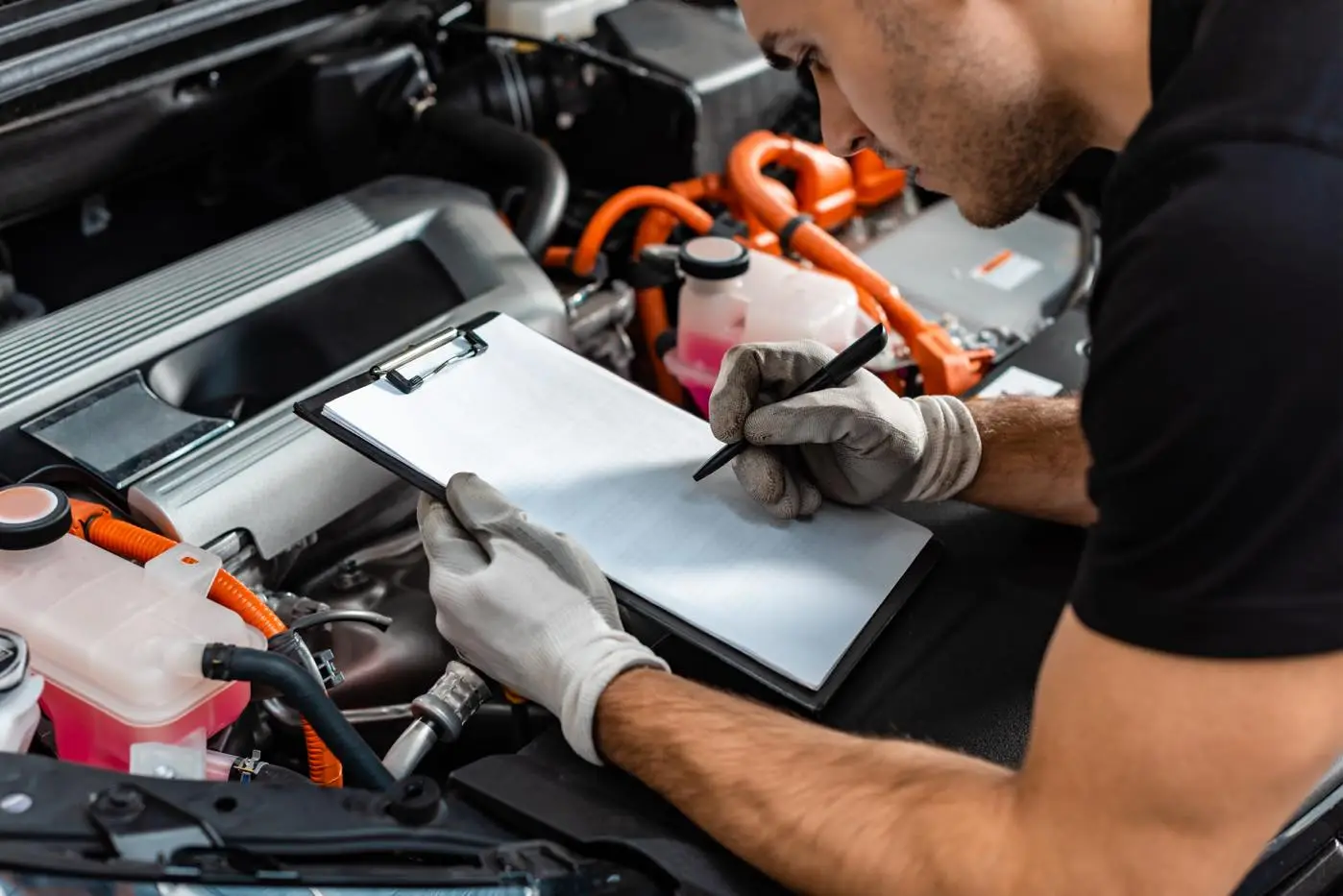“By law, every employer must make sure that work equipment is maintained in an efficient state, in efficient working order and in good repair” – Health and Safety Executive
(The HSE also defines vehicles as “work equipment”)
Ensuring that vehicles remain in safe and reliable condition is a crucial aspect of fleet management. Fleet inspections serve as an essential component of maintaining operational efficiency, reducing unexpected failures, and improving overall safety. By carrying out routine vehicle inspections, businesses can proactively address issues before they escalate, keeping fleets compliant and reducing long-term expenses.
A structured approach to fleet maintenance is vital in preventing costly breakdowns and improving vehicle longevity. Regular preventive maintenance can help fleets run efficiently while keeping drivers and other road users safe.
Extending Vehicle Lifespan Through Regular Inspections
A well-maintained vehicle fleet is a long-lasting one. Regular fleet inspections ensure that vehicles operate at peak efficiency for extended periods, delaying the need for costly replacements.
By identifying wear and tear early, fleets can avoid unexpected mechanical failures that would otherwise shorten a vehicle’s service life. Preventive maintenance strategies, including scheduled servicing and early defect detection, significantly contribute to vehicle durability.
Long-term investment in fleet maintenance helps businesses avoid premature vehicle depreciation, making it easier to retain a fleet that remains roadworthy and cost-effective.
Reducing Vehicle Downtime with Preventive Measures
Unplanned breakdowns can have serious consequences for fleet-dependent businesses. When vehicles are unexpectedly out of service, operations slow down, delivery schedules are disrupted, and company costs increase.
Conducting thorough vehicle inspections as part of a structured preventive maintenance plan helps mitigate downtime. By detecting minor faults before they turn into major mechanical failures, fleet managers can keep more vehicles on the road and avoid unexpected service interruptions.
A report by SMMT (The Society of Motor Manufacturers and Traders) states that unplanned downtime costs fleets an average of £400-£700 per day per vehicle, demonstrating the financial impact of avoiding regular fleet inspections.
A fleet that undergoes routine fleet inspections is less likely to face unplanned disruptions, ensuring higher levels of productivity and reliability in day-to-day operations.
Lowering Operational Costs Through Fleet Inspections
An efficient fleet is a cost-effective fleet. Vehicles that receive regular fleet maintenance perform better, use fuel more efficiently, and require fewer emergency repairs. This leads to a significant reduction in operational expenses.
Neglecting vehicle inspections often results in unforeseen repairs that are considerably more expensive than routine servicing. Addressing mechanical issues before they escalate ensures that businesses avoid unnecessary expenditures and maintain financial control over their fleets.
Research from Energy Saving Trust shows that businesses implementing preventive maintenance can reduce repair costs by 15-20% annually.
Additionally, well-maintained vehicles tend to experience fewer accidents, reducing insurance costs and legal liabilities. A strong preventive maintenance programme contributes to cost savings by keeping vehicles in optimal condition and reducing the likelihood of sudden breakdowns.
Prioritising Safety for Drivers and Road Users
Safety is one of the primary concerns in fleet management. Regular fleet inspections play a crucial role in ensuring that vehicles are roadworthy and compliant with legal requirements, protecting both drivers and the public.
Poorly maintained vehicles pose risks, including brake failures, tyre blowouts, and steering malfunctions. Routine vehicle inspections help identify these hazards before they become critical safety concerns. Fleet managers must ensure that every vehicle meets necessary safety regulations, reducing the risk of accidents and legal consequences.
A study conducted by RoSPA (The Royal Society for the Prevention of Accidents) found that fleets conducting regular vehicle inspections saw a 20-25% reduction in accident rates.
Moreover, drivers who operate well-maintained vehicles experience greater confidence behind the wheel. When a fleet adheres to strict preventive maintenance schedules, it fosters a culture of safety and responsibility among employees.
Complying with Legal and Industry Standards
Many countries, including the UK, enforce strict regulations regarding fleet maintenance and roadworthiness. Businesses operating fleets must adhere to these legal requirements to avoid penalties and potential operational restrictions.
Routine fleet inspections ensure compliance with industry standards, reducing the likelihood of regulatory fines. Keeping comprehensive records of vehicle inspections also helps businesses demonstrate their commitment to safety and responsible fleet management.
Failure to comply with inspection regulations can result in fines of up to £5,000 per vehicle, according to Gov.uk.
Compliance is not just a legal requirement—it is a business necessity that safeguards operations and promotes a professional reputation in the industry.
How Fleet Inspections Improve Business Efficiency
A well-structured fleet maintenance plan ensures that vehicles operate at peak performance, reducing inefficiencies and improving operational flow. By incorporating regular fleet inspections, businesses can avoid unnecessary expenses and maintain seamless transportation logistics.
Fleet managers benefit from structured maintenance schedules, automated servicing alerts, and digital tracking of vehicle inspection records. These tools help businesses plan vehicle usage more effectively, ensuring minimal disruption to daily operations.
Integrating Fleet Inspections into Daily Operations
A successful fleet management strategy includes routine fleet inspections as part of daily operations. Regular pre-trip and post-trip vehicle inspections allow fleet managers to stay ahead of potential issues and maintain a proactive approach to fleet maintenance.
Encouraging drivers to conduct basic checks before setting out on journeys can further enhance preventive maintenance efforts. By integrating inspections into company policy, businesses foster a culture of accountability and vehicle care.
Strengthening Fleet Operations with Regular Inspections
Fleet inspections are more than just a regulatory requirement—they are an essential component of running a safe, cost-effective, and efficient transport operation. Regular vehicle inspections reduce risks, improve vehicle longevity, and support a well-structured fleet maintenance programme.
Investing in a consistent preventive maintenance routine leads to long-term financial savings, better driver safety, and compliance with legal standards. By integrating inspections into everyday operations, businesses ensure that their fleets remain in peak condition while avoiding unnecessary downtime and expenses.
To gain better oversight of fleet inspections and streamline maintenance planning. Schedule a demo to learn how digital tools can enhance inspection accuracy and scheduling efficiency.
